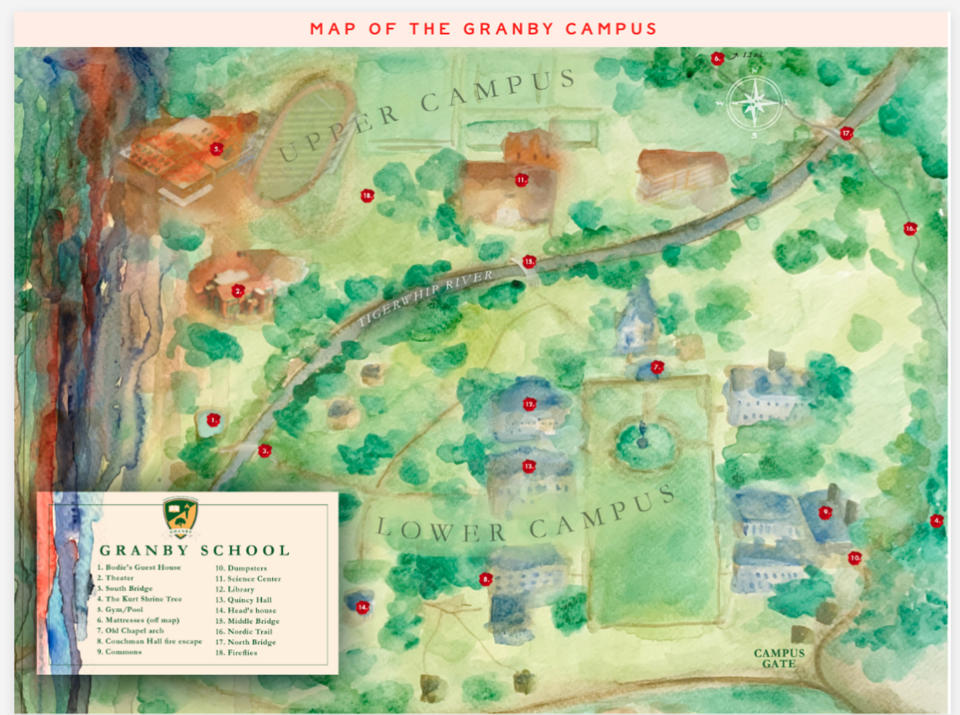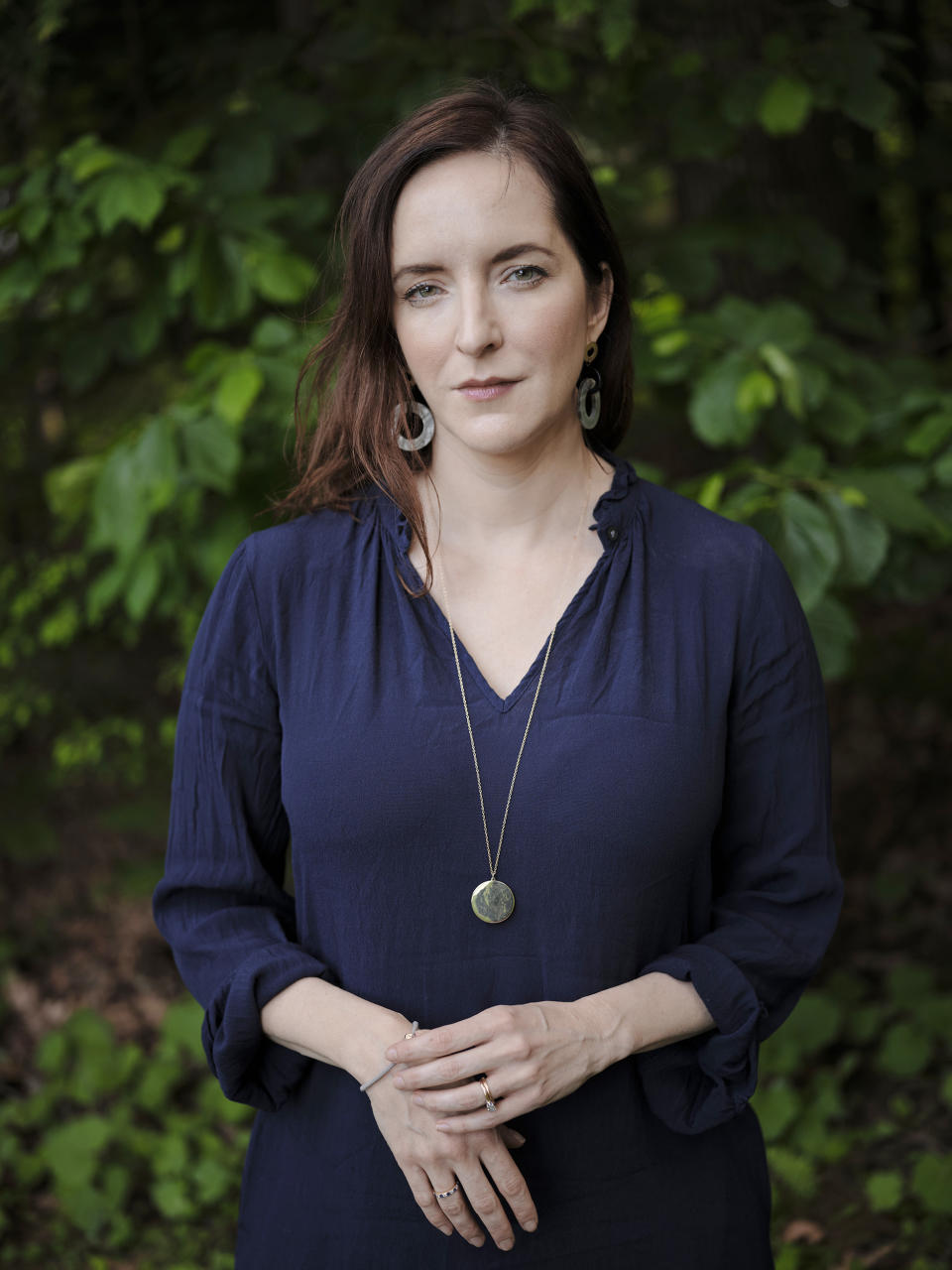Rebecca Makkai wrote ‘I Have Some Questions for You.’ We have some questions for her
- Oops!Something went wrong.Please try again later.
Rebecca Makkai, the author of the 2018 novel and BookTok favorite "The Great Believers," is back with another book. "I Have Some Questions For You" came out on Feb. 21.
The thriller follows Bodie Kane, a podcast host and film professor, as she returns to Granby School, the boarding school in New Hampshire she attended as a teenager, to teach a two-week course on podcasting.
One of Bodie's students chooses to create a miniseries on the death of Thalia Keith, Bodie's former roommate who was murdered during their senior year. Forced to revisit the case as an adult, Bodie begins questioning the conviction of Omar Evans, an athletic trainer at the school, in Keith's murder. Bodie also re-examines her own past at Granby to search for other suspects.
"I Have Some Questions for You" tackles society's obsession with true crime, sexual harassment, wrongful incarceration and murder, among other things — leading us to have quite a few questions of our own for Makkai.
You went to boarding school. When did you get the idea for a book set in one?

This was a book I was doing over a long time — I do that with all my novels. I have a marination phase before I commit it to writing. I started writing in early 2019 — like actually opening the file and started typing.
I was a day student at a boarding school, but (the book) is not about my experience. What I really wanted to do was write about an adult trapped in the present trying to look back. What a lot of fiction does is it actually zips us back in time, it takes us there. You know, "Here's what really happened," either pretending that people have perfect memories, or the narrative to. It says 1995 at the top at the top of the page and then we're there.
And I didn't want to do any of that. I was a lot more interested in the way memory actually works and in the way we're actually trapped in the present in real life. So this was about someone trying to revisit their adolescence and being fundamentally unable to do that, the way we are all incapable of doing that.
Was tackling so many big themes all in one book a conscious choice?
I never lead with theme. I'm never sitting down going, "OK, I'm going to write about loss." I teach novel-writing to students, I can tell you from experience that when people sit down and start with theme, they have a hard road ahead. It can be really didactic or really frustrating for the author as well as the reader.
So I always start with story. Then, as those themes come up, it is a conscious choice of whether to embrace that or to that edit that stuff out.
When you get into a story like this — a crime that people think has been solved but hasn't — then you start dealing with with the realism of things. This is going to be about wrongful incarceration, which disproportionately affects Black men. This is going to be about racism too. It's going to be about class, it's going to be about privilege, it's going to be about gender. It would be dishonest to write a book that was not about those things when I was tackling this as a story topic.
The book's friends have always stood by each other, even years later. Why was that important for you to highlight?
People protect their friends — you have an idea of who someone is. And it is really hard to realize that they can be someone else. In this case, I don't think anyone's going, "Oh my god, this guy actually did it," and then lying to protect someone.
I think it's it's much more people being able to wrap their heads around someone they know to be a fun guy and a "good guy." You go, "OK, that means there's no way he could have possibly done this. I'm going to help everyone else realize he couldn't possibly have done this, and save everyone a lot of time."
You used the names of fans and readers as characters in the book. Can you talk about that?

Yeah, this was really fun! In the summer, I put something out on social media: If you buy a book from an indie bookstore today and send me the receipt and you want your name in my new novel, I'll put it in as a really minor character. 25 people or so did this, and I had this amazing list of names, and I used them all.
Some of the characters ended up growing into pretty major characters. There was at least one person I needed to kind of track down again on social media and be like, "So ... your character turned into a pretty major character, do you want me to change the name or change the spelling?" And she was like, "No, go for it! I don't care if that's what people get when they Google my name." So hopefully nobody's horrified with the results.
Your previous novel 'The Great Believers' is getting some pickup on BookTok and BookTube. How do you feel about like those communities and the whole phenomenon?
I love it. There was this lament going on when my first few books came out, 2011 to 2014, that books were getting less and less coverage in newspapers. There was real concern about how people are going to hear about books.
But today, indie bookstores are actually thriving and these online communities are incredible. They are really grassroots and word-of-mouth, people talking about books that they genuinely love. This isn't influence that can be bought. It has to be genuine.
I think (BookTok) is amazing. Bookstagram stuff has been amazing (too). I’ve also been so interested, because "The Great Believers" is out in a lot of translations and different communities, different countries, they use social media for books really differently. Polish Bookstagram is on fire. Amazing. And then like in Hungary, everything happens on Facebook, and there's just all these totally different ways that it functions, but oh my God, Polish Bookstagram, you should see it, it's unbelievable.
This interview has been edited for length and clarity.
This article was originally published on TODAY.com

